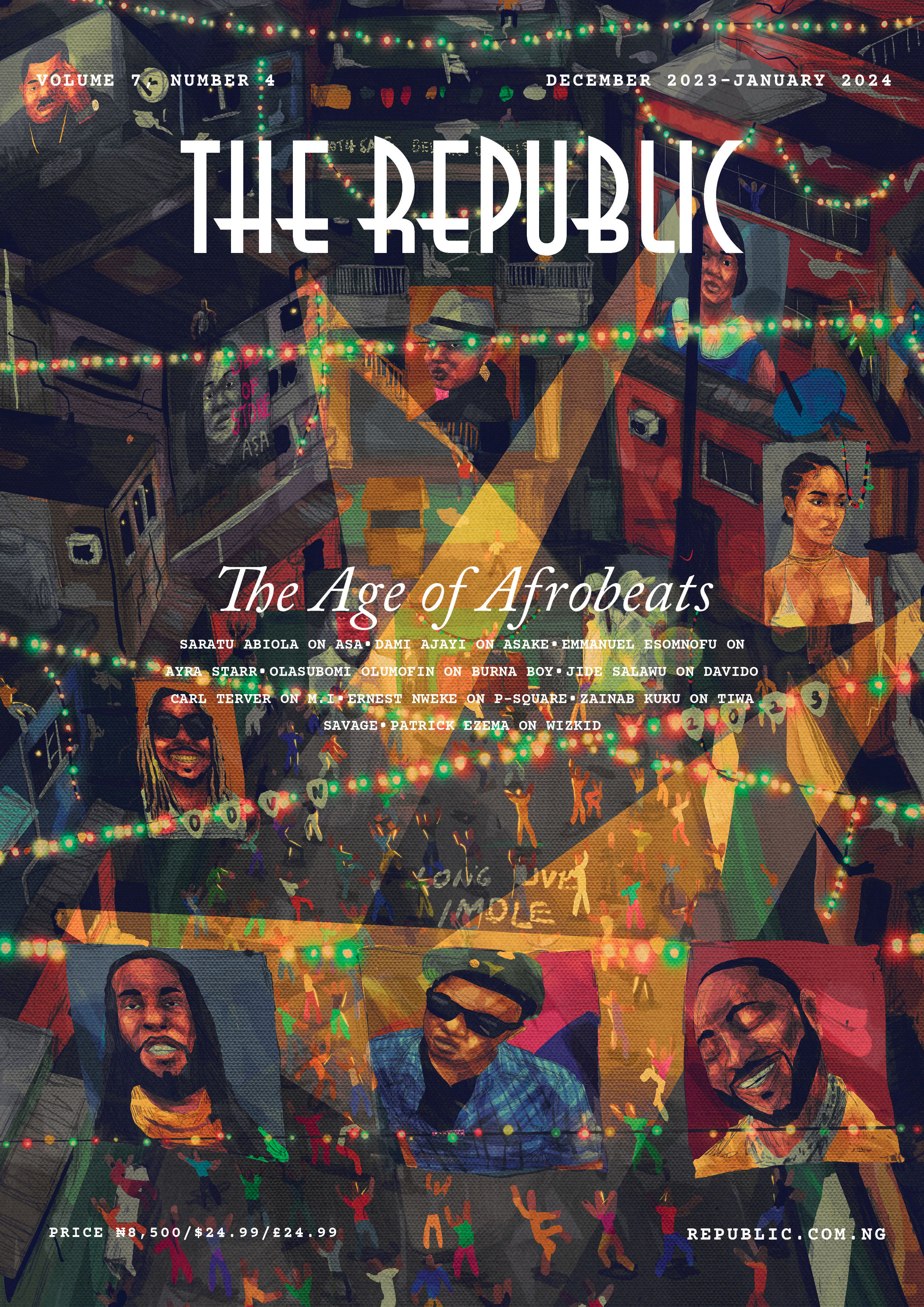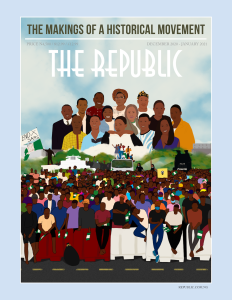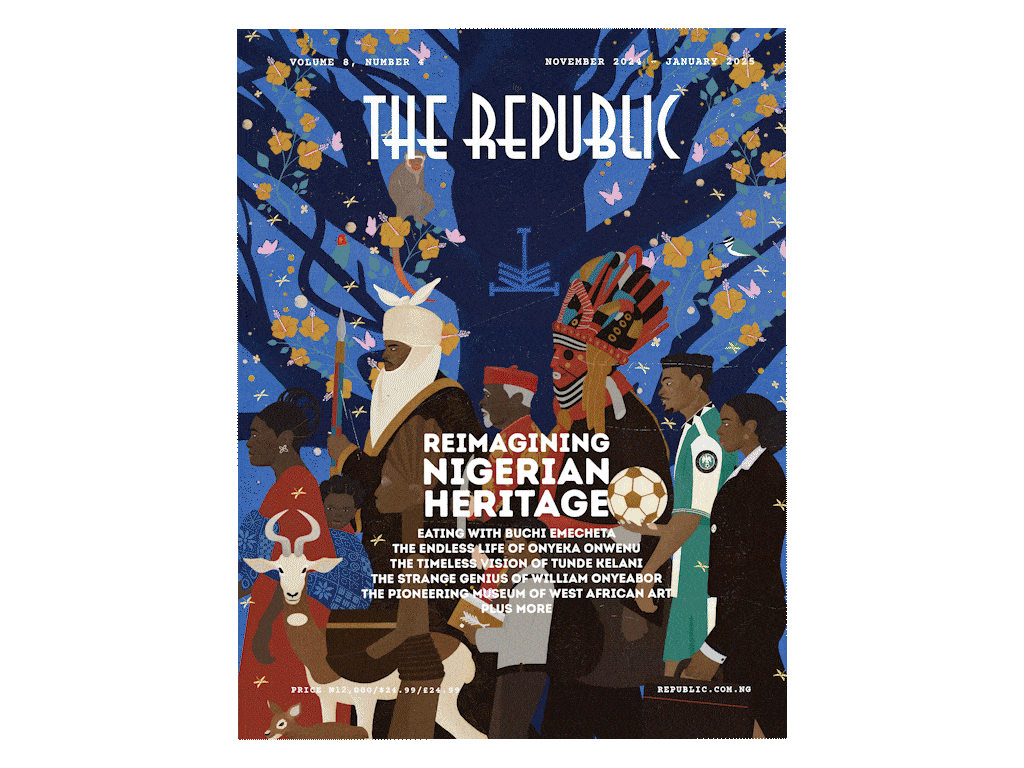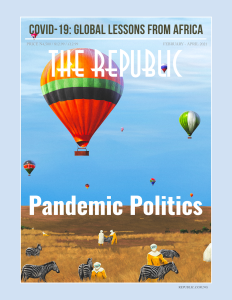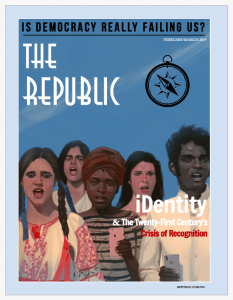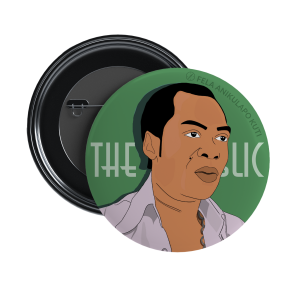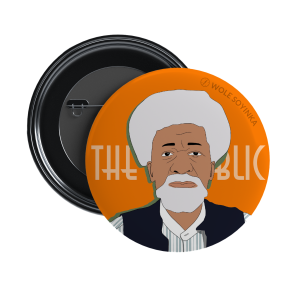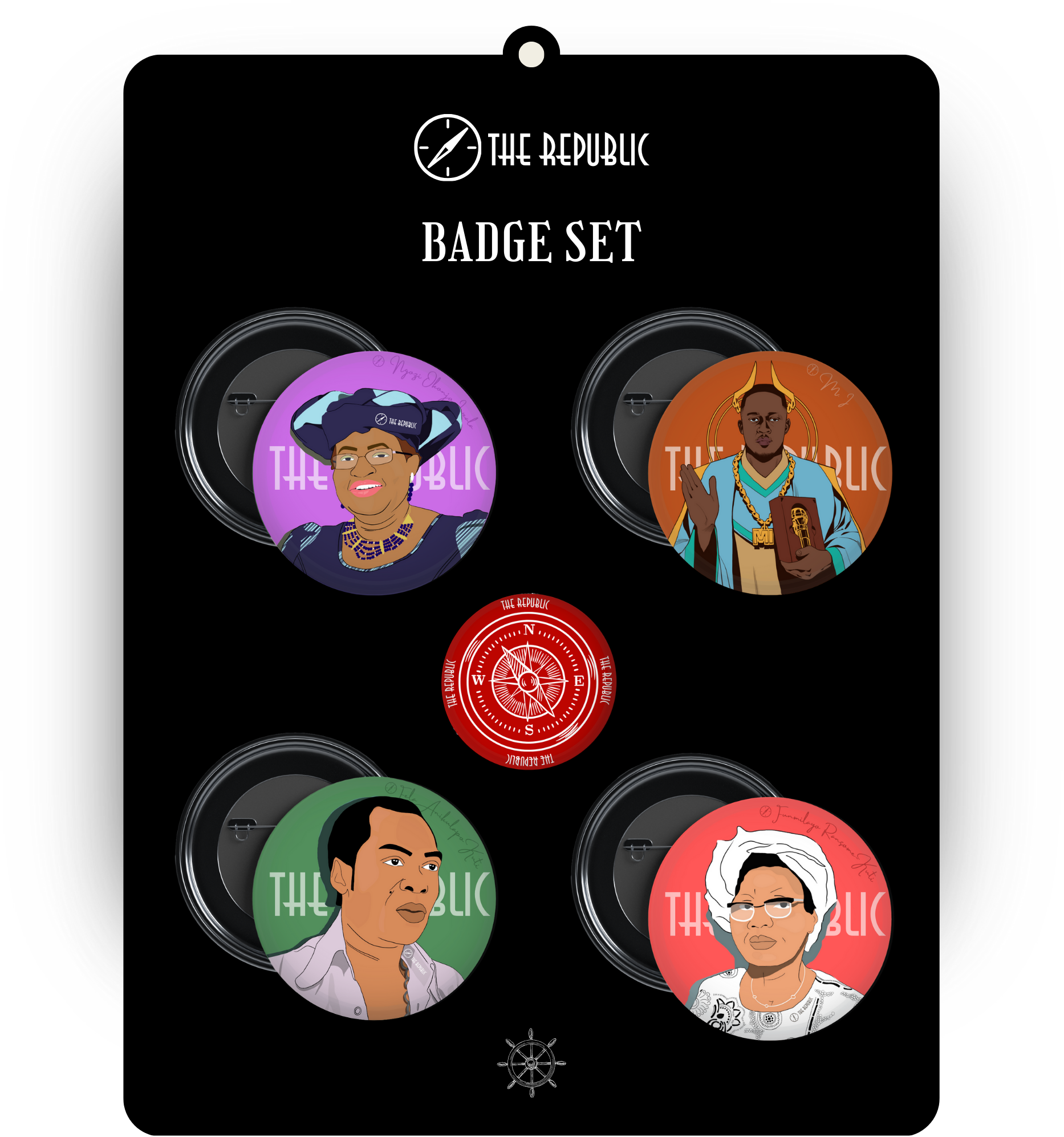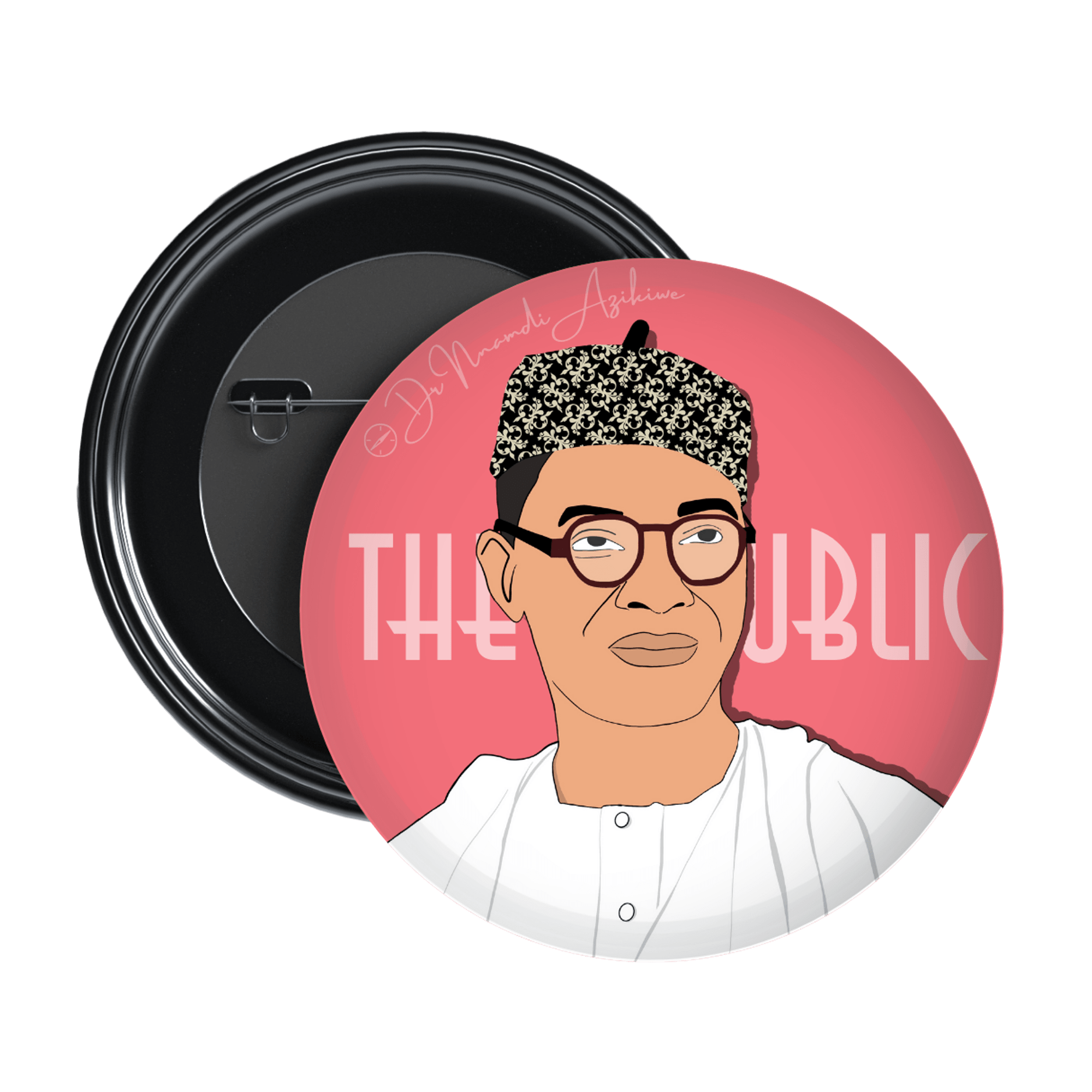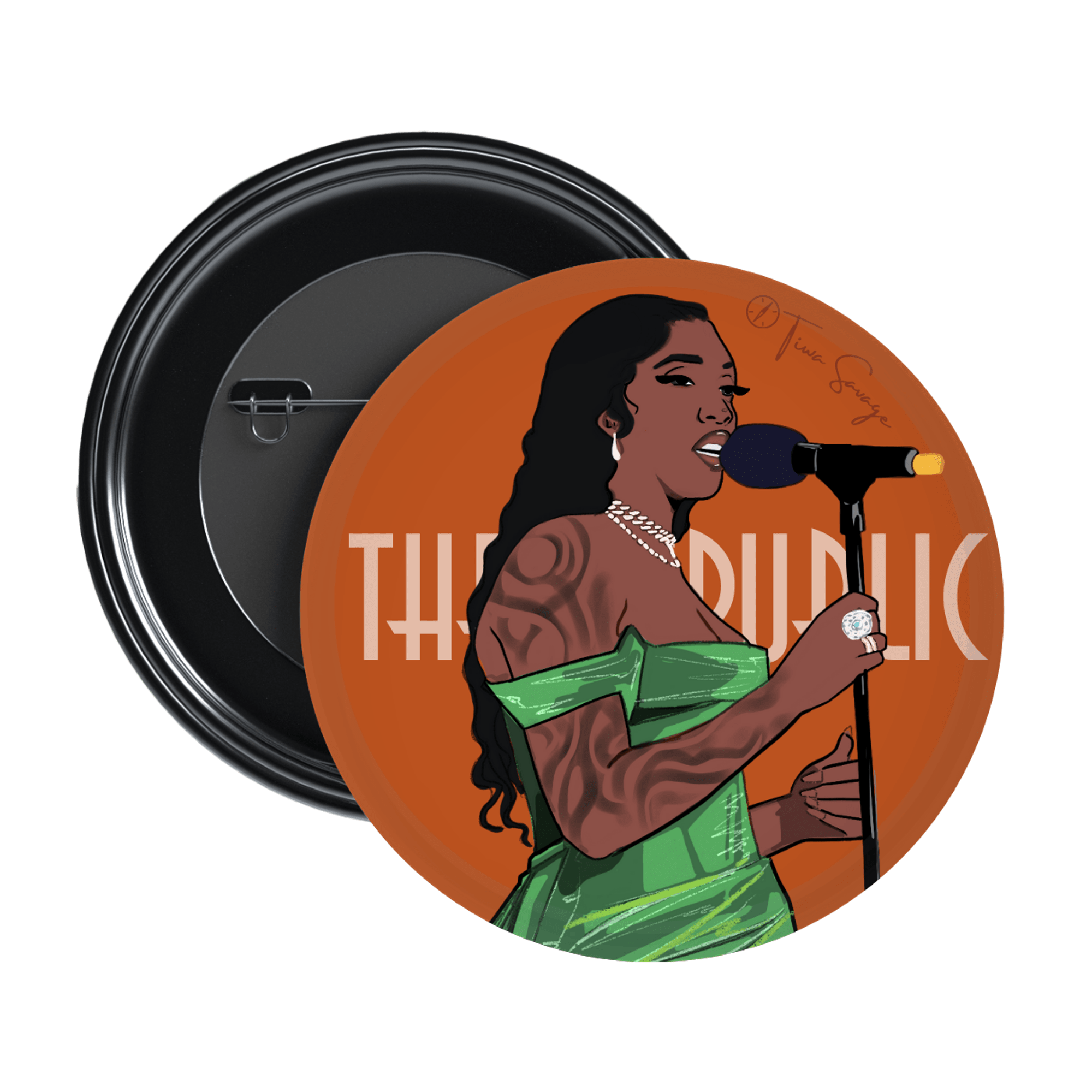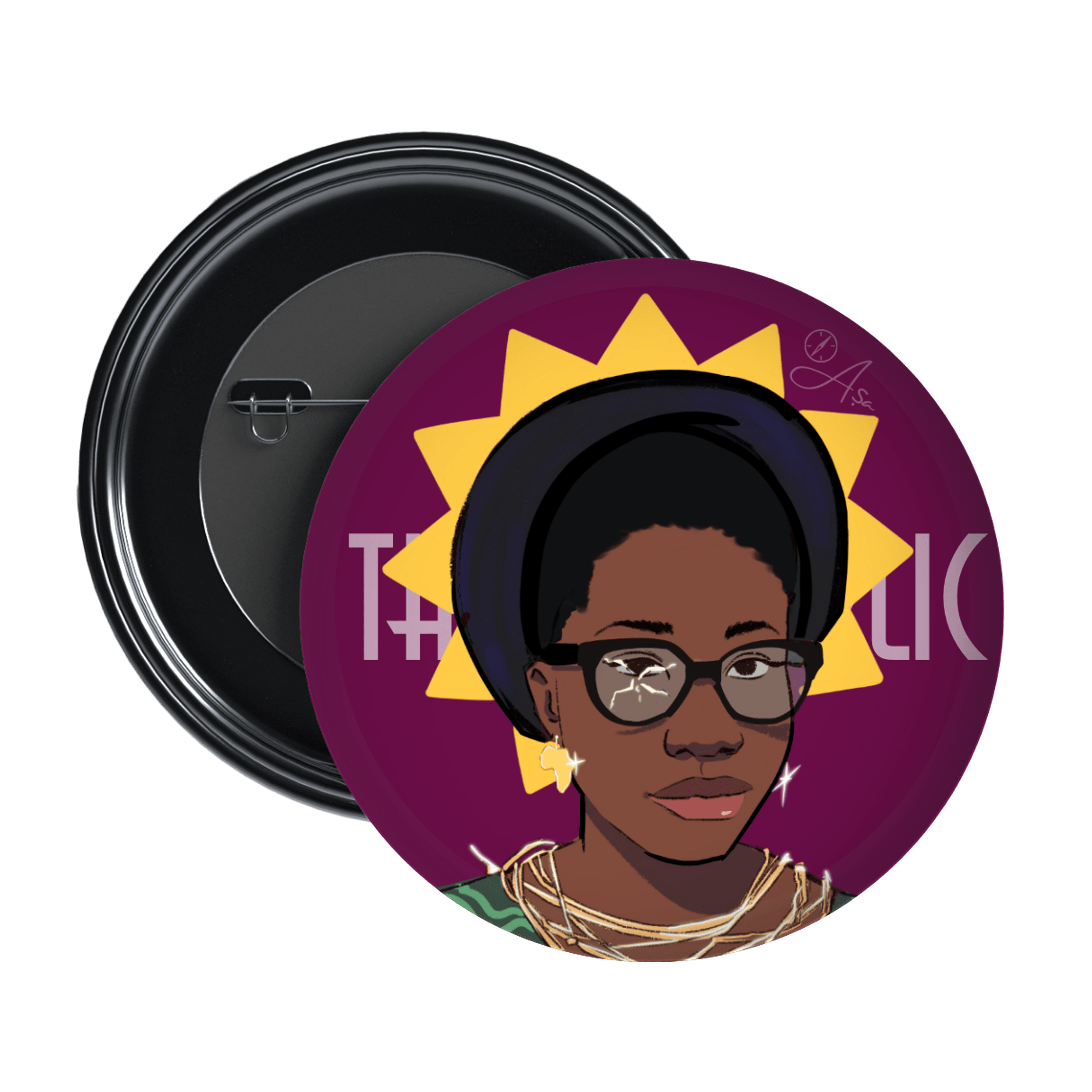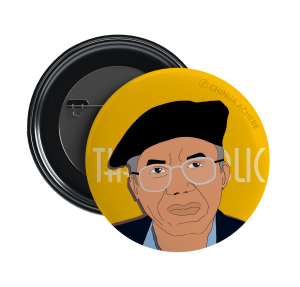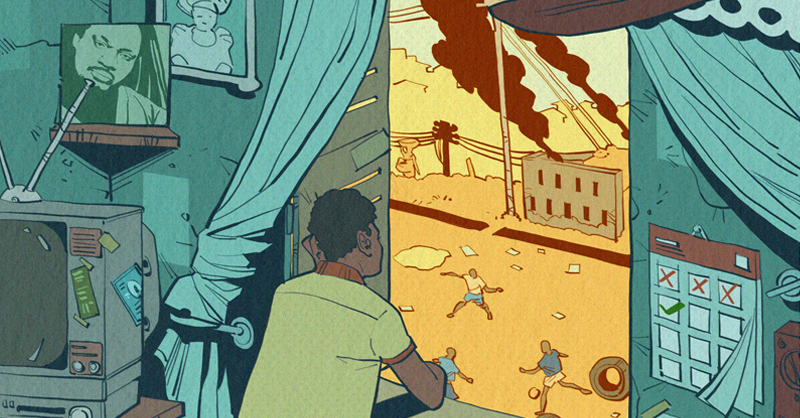
A Portrait of Grief & a Tomorrow. Illustration by Charles Owen (blvninjv) for The Republic.
the ministry of CULTURAL AFFAIRS
The Paradoxes of a Life in Ajegunle

A Portrait of Grief & a Tomorrow. Illustration by Charles Owen (blvninjv) for The Republic.
the ministry of CULTURAL AFFAIRS
The Paradoxes of a Life in Ajegunle
Igrew up and still live in Ajegunle, one of the largest slums in Lagos State, Nigeria. The name, ironically, means ‘wealth has landed here’ in Yoruba. Ajegunle has a population of over 500,000 people and is bordered by two major seaports—Apapa Port and the Tin Can Island Port. Despite being sandwiched between the most important shipping hubs in Lagos, Ajegunle is infamous for being a hotbed for cultism, theft, and other violent crimes. Nonetheless the town has produced renowned figures in sports, music, and entertainment—with the likes of Don Jazzy, Odion Ighalo, Taribo West, African China and Daddy Showkey, who all credit their upbringing in Ajegunle for shaping their lives. I came of age in this paradox of a town, though in relative seclusion, knowing little about the world around me. I had inherited a palace of grief, and with each passing year, I learnt that in this community, no one was safe; everyone carried within them the familiar memory of loss and of grief. I was around four years old when Eedris AbdulKareem released his third album, Jaga Jaga. The song that gave the album its title encapsulated the transgenerational dysfunction into which I was born.
A PALETTE OF FEAR
I have been accustomed to the smell of burnt bodies and tyres since I was in primary school. In one of those canals around Orodu or New Road axis, I once saw a young man’s body afloat, with people gathering to spit their disgust. The gangs in my hood take centre stage, with the chorus of guns as their backdrop. You can read the gibberish glyphed on one’s back by a cutlass. Someone is robbed; another is stabbed or shot dead at Boundary market, Alayabiagba, Alaba-Oro, Ojo road, and Wilmer. Shops are ransacked. And all the vehicles that bore witness to this gross drama lose their faces—all these could happen within a few hours, and simultaneously.
On days like this, we become guardians of the clouds. Rain is forbidden. It is a sign for another tragedy—an inter-street pillage, to be exact. Here, the unemployed have a say. And the little children are grown men. So, you barely see the difference until news spreads that one of them was killed during a street fight. We weep with awe wrapped around our chest—a social condolence. Na so that small boy take die? This was the fate of Endurance Augustine, a schoolboy stabbed during a brawl at a birthday party in 2016. One of the many stories that occasionally make their way to the mainstream media. Sometimes, this news comes in pockets of hearsay, mostly true, and in some circulated snippets of dead bodies with several body cuts in a pool of blood. We, who in that dark room of fear, find relief in the sound of sirens, not the police officers. One or two innocent persons will be arrested. Like Freytag’s pyramid, the community falls into unanimous silence as if the dead mourn: the end. Soon as everyone gathers, Ajegunle is on the news again:
Police kill ex-convict, accomplice caught robbing on CCTV. I’m Our Gang’s Armourer—robbery Suspect. Ex-convict, Wanted Criminal Terrorizing Ajegunle Area Neutralize in Lagos. ‘Growing up in Ajegunle without joining criminal gang is a miracle’. Girl dies, man injured in another police shooting at Ajegunle Lagos. Two killed, several wounded as street boys clash in Ajegunle, Lagos. Gang war sparks crisis in Ajegunle. Suspected cultist dies in fresh Ajegunle Lagos cult clashes.
My family and I have been victims of this youth restiveness on several occasions. I remember how my mother had protected my siblings and I from a robbery attack as a child. It was midnight. I still hear the bang. In her frenzy, my mother had moulded us into a statue of silence. We were under the bed—four kids. I watched her fidget. I am not sure she knew what to do. Another bang! But somehow, she has managed to place our couch, and all the things you can imagine—including my school bag—behind the door so it refuses to open. While I stare with a sort of childlike restiveness as my mother paces around the room, we hear our neighbours scream—they were robbed and left with injuries.
I remember being part of the community policing efforts during the pandemic in 2020, after rumours spread that the One Million Boys planned to strike. That would not be their first time. Far back in 2012 through 2016, there were several reports published about their criminal activities. The group was initially formed in Ajegunle to fight injustice before it was hijacked by criminal elements. At the time news spread about their planned strike, I was instantly engulfed by memories of my past experiences as a child. I could not understand how I ended up there—drafted into the community efforts to neutralize a robbery gang. Men and boys from each compound were expected to be out at night till dawn. No one trusted law enforcement to deal with the problem. We were barely armed. I remember a friend who had just his belt as a weapon. I only had a kitchen knife for protection. During those sleepless nights when we made rounds, I recall now how we masked our fear with bravado and dry gin, internally hoping they would not strike. Just like that, I was already taking responsibility on behalf of a failed state. After all, safety in this side of the world is earned.
shop the republic
-
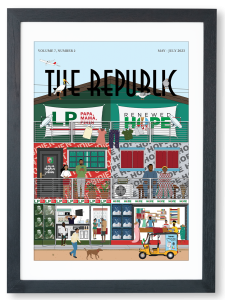 ₦70,000.00 – ₦75,000.00Select options This product has multiple variants. The options may be chosen on the product page
₦70,000.00 – ₦75,000.00Select options This product has multiple variants. The options may be chosen on the product page -
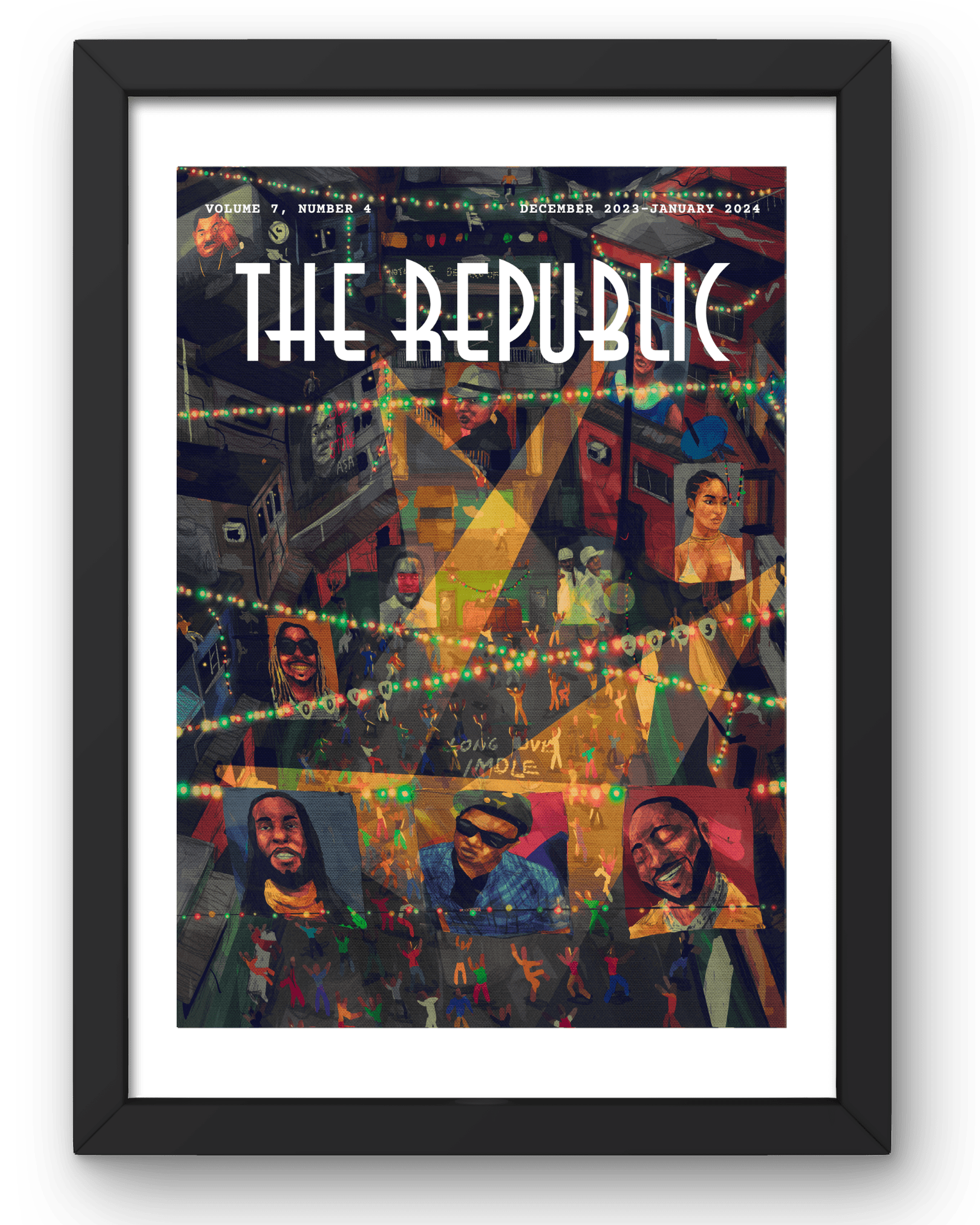 ₦70,000.00 – ₦75,000.00Select options This product has multiple variants. The options may be chosen on the product page
₦70,000.00 – ₦75,000.00Select options This product has multiple variants. The options may be chosen on the product page -
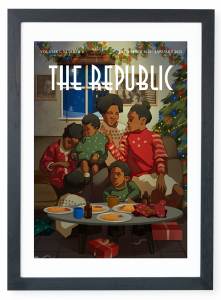 ₦70,000.00 – ₦75,000.00Select options This product has multiple variants. The options may be chosen on the product page
₦70,000.00 – ₦75,000.00Select options This product has multiple variants. The options may be chosen on the product page -
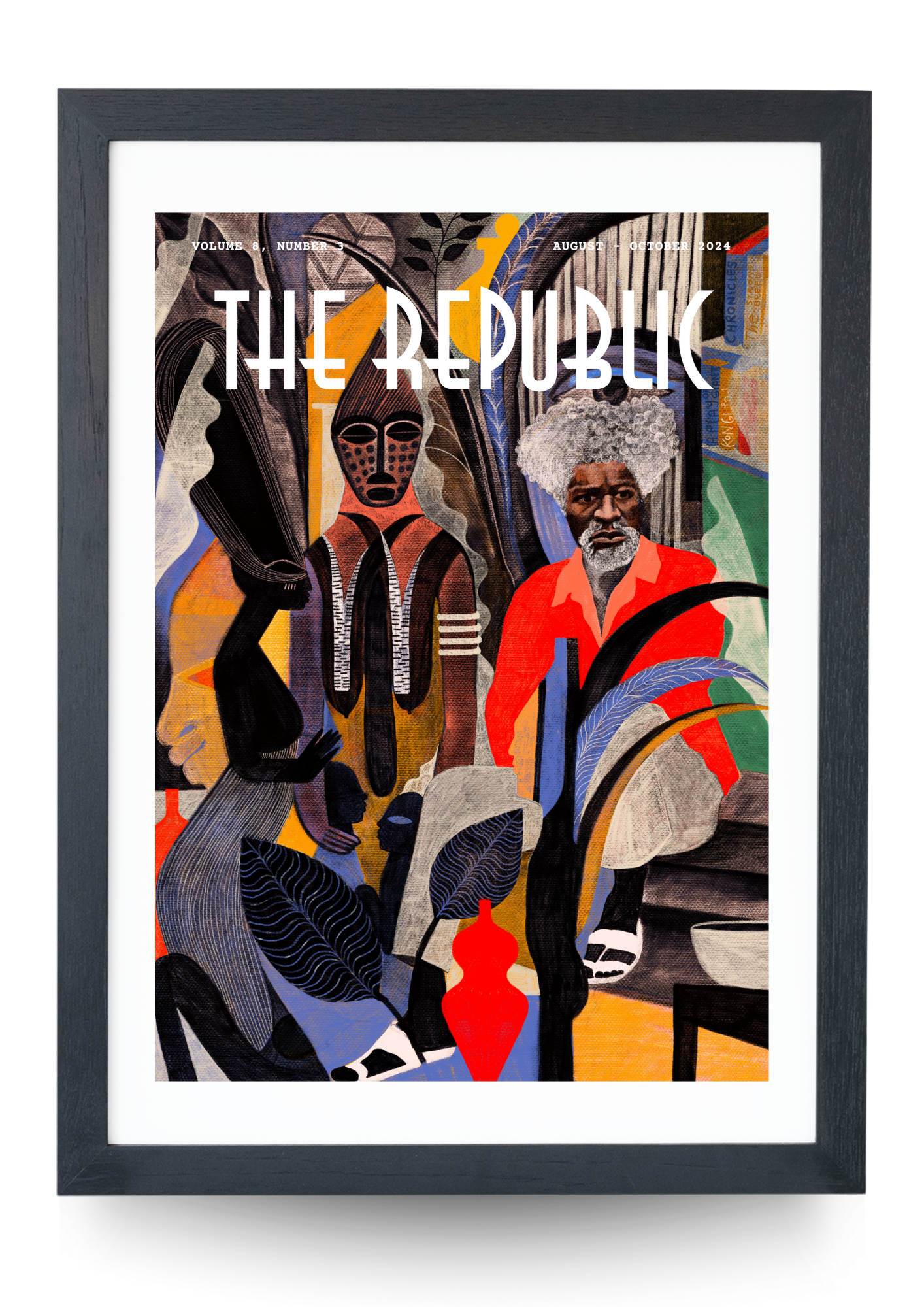 ₦70,000.00 – ₦75,000.00Select options This product has multiple variants. The options may be chosen on the product page
₦70,000.00 – ₦75,000.00Select options This product has multiple variants. The options may be chosen on the product page
shop the republic
-
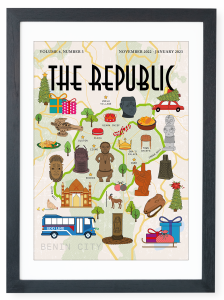 ₦70,000.00 – ₦75,000.00Select options This product has multiple variants. The options may be chosen on the product page
₦70,000.00 – ₦75,000.00Select options This product has multiple variants. The options may be chosen on the product page
A RETROSPECTION OF VIOLENCE AND SURVIVAL
Circa 2023: it is an election year. The cash crunch was only a foreshadow of a greater economic mess. I returned home, after an extended stay in Benin—after completing my final year clearance and the second edition of the Benin Art and Book Festival.
Three major candidates stared at you: Bola Ahmed Tinubu, Atiku Abubakar, and Peter Obi. The election will be free, fair, and peaceful. I have known that mantra since high school. I knew it would not be long before I was caught up again in that loop of fear: the fear to be unsafe, the fear to vote, the fear to travel, the fear to be kidnapped on your way to serving your country, the fear to eat, the fear to walk late at night, the fear to be stuck in traffic while returning from an evening literary event, the fear to sleep, the fear to lose someone, the fear that someone will lose you, the fear to die. And somehow, in an unmentionable way, you see your fears play before you.
‘Things have gotten much worse now,’ I said to myself after reading the confession of a member of the One Million Boys who was arrested in 2012. His words:
I am a professional baker. I could not further my education after my secondary school because of poor financial background. My mother sells roasted plantain and yam along the road while my father is jobless. We are eight children in the family, and I am the second child. It is poverty that drove me into becoming a baker. And of course, joining the One Million Boys.
I could not but ruminate on these words. If these were the reasons behind him being part of a robbery gang, what must have become the fate of the many children and youths in Ajegunle now that the economic hardships tenfold?
While the government revelled in opulence, jumbo salaries, and social irresponsibility, I watched my friends succumb to the perils of drugs, gambling, crime, and eventually, untimely death. I could not stare long at one of my high school classmates while I was boarding a bus from Boundary market to Suru-Alaba. He looked drained. In one hand, he held a rubber pipe and on the other, folds of money. He is shouting at the top of his voice, under the scourging sun. One of the bus drivers has refused to pay for a bus ticket I found completely meaningless. I was irritably cold. He used to be brilliant, then. Or was it Victor? I heard he is now into internet fraud—one of the math geniuses I admired during tutorials back then, ‘our head boy’. Or how I still tremble every time I remember Kelvin died in front of his compound after being stabbed by boys who tried snatching his phone. Deep down, I can only think of Jostein Gaarder’s Sophie’s World. In this part of the world, there are barely any Sophies left.
As I recount these incidents—the massacre at Lekki toll gate; the razing of the police station near my home; the gun duel; the street clashes; the abducted children in Kaduna; the Owo Massacre; the farmer/herders crises; the ritual killings and kidnapping; and having to see my childhood friends consumed by hard drugs, tattooed by scars and now an Agbero—I become hypertensive. An unnamed restlessness fills me. We had ambitious dreams, once. Dreams of how we would someday contribute to the growth of society. But now, we hang a portrait of grief somewhere—memorabilia of crises.
shop the republic
shop the republic
BOOKS: THE VOLTA OF MY LIFE AS A KID IN AJEGUNLE
The rates of school dropouts, child labour, unemployment, and crime keep increasing. Since the introduction of student loan scheme, school fees for virtually all public universities have increased between 100-300 per cent. In Ajegunle, most public schools have few or no teachers. The classrooms are congested. The only public library is dysfunctional and sparsely stocked with books. Here is a place that harbours hunger, poverty, and the beastly struggle to survive. How can one be hungry and be in school at the same time? These days even parents urge their children, barely adults, to find jobs that would fetch them money—here, a child is likely collateral damage.
‘School na scam,’ my younger brother once told me. I was shocked. He was barely in JSS 3 at the time. I could not find the right words. These are the exact thoughts of the chaps in my community. The same ones who will become political tools of unrest. I could only sigh. After all, I was not different. I had only met a six-week free ‘summer coaching lesson’ organized by the Education Rights Campaign (ERC) in 2015. There, I was given Chinua Achebe’s Things Fall Apart as a reward for my academic performance—the first book I would own, a book that would become the volta of my life as a writer, critic, and activist. And soon, I’d find myself asking questions about my past, my African history.
I met Oko Owi Ocho who introduced me to the African Writers Series and pan-Africanism. There was Fidel Davynovich and Aj Dagga Tolar who I would come to have conversations with around philosophy, Marxism, religion, culture, and literature. Seyi Lasisi and I would come to share a friendship that sees us argue over what we have written or read together after attending one of those AJ House of Poetry’s weekly meetings. Without that singular opportunity to gain access to free lessons, I have often wondered what exactly would have been the trajectory of my life as a child growing up in Ajegunle.
THIS DARK ROOM NEEDS AIR AND LIGHT
While I sit in my dark room and stare into a grief I am trying to heal from, I crave a tomorrow where no child would have to hawk or beg in the streets or see reasons to become the next local champion by the number of bodies they have stabbed or killed. I look to a tomorrow where no one feels unsafe and nurtures grief out of the fear to breathe. I crave a tomorrow where, like Chinua Ezenwa Ohaeto has written, everything grows to live. A tomorrow where a child has a right to free, qualitative, and functional public education. And a country does not make a political thug out of every child from the slums⎈
shop the republic
BUY THE MAGAZINE AND/OR THE COVER
-
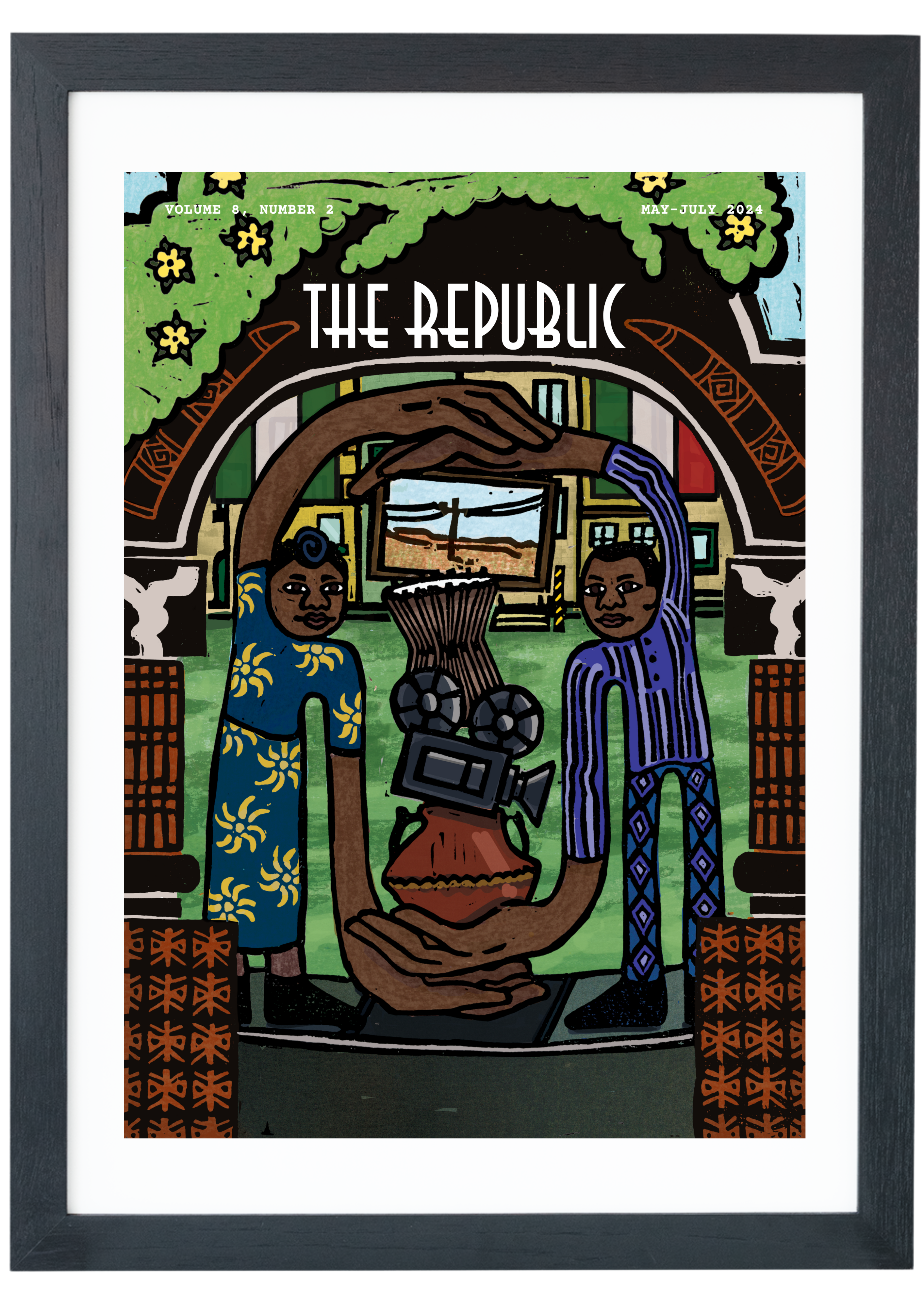 ₦140,000.00 – ₦150,000.00Select options This product has multiple variants. The options may be chosen on the product page
₦140,000.00 – ₦150,000.00Select options This product has multiple variants. The options may be chosen on the product page -
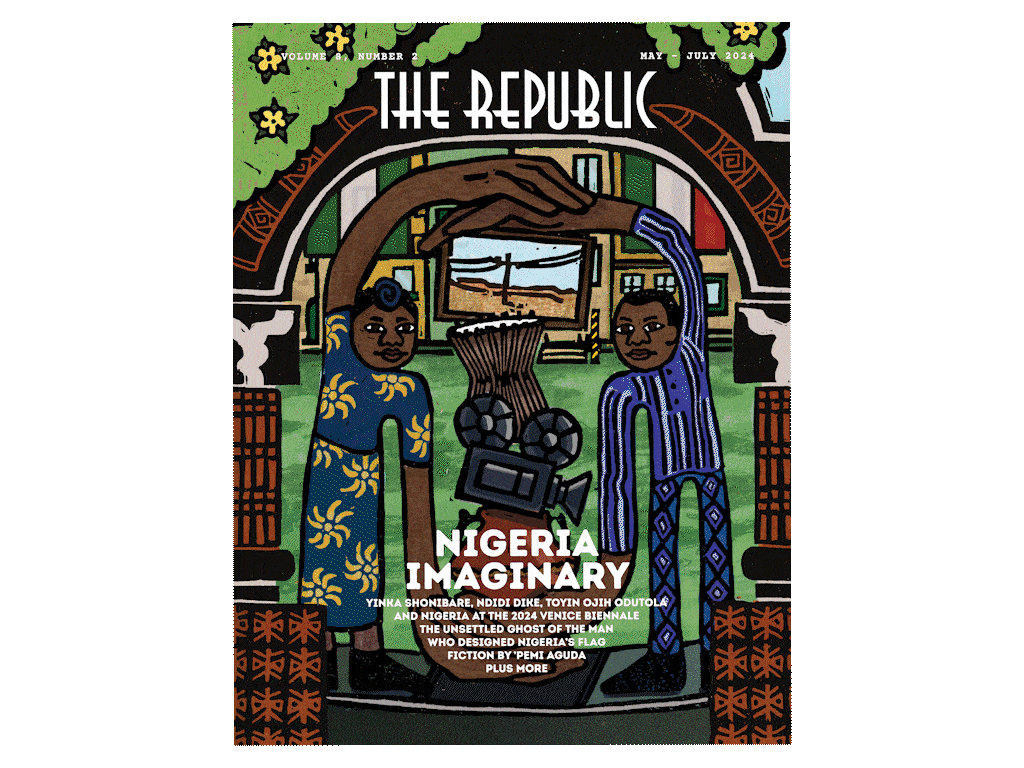 ₦20,000.00 – ₦60,000.00Select options This product has multiple variants. The options may be chosen on the product page
₦20,000.00 – ₦60,000.00Select options This product has multiple variants. The options may be chosen on the product page




